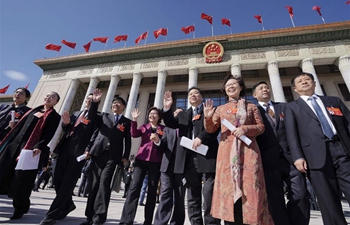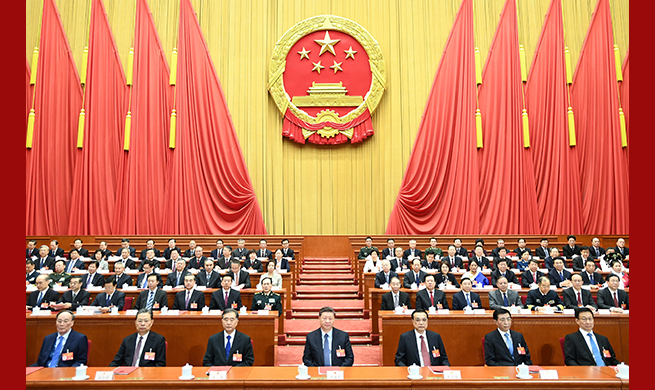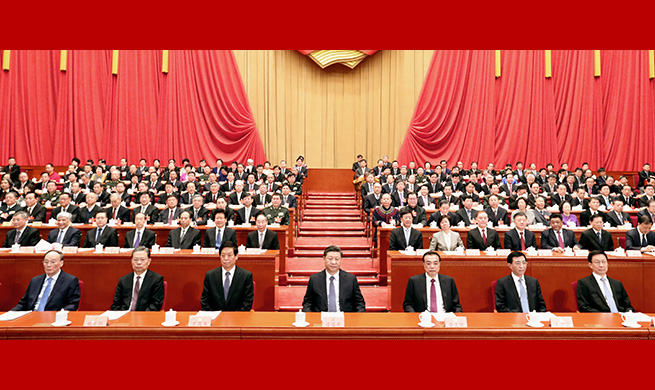NAIROBI, March 15 (Xinhua) -- The fast growing cities in the Global South are grappling with waste crisis thanks to limited infrastructure and technical knowhow to promote recycling.
In many instances, urban centers in the developing world rely on landfills to dispose tonnes of waste generated by households and industries.
The growing waste crisis in less developed countries has been linked to the dominance of the linear economy where producers convert natural resources to products which consumers later dispose of in an environmentally unsustainable manner.
Nevertheless, policy makers and experts have identified circular economy as a long term solution to the growing urban waste crisis.
Siim Kiisler, president of the fourth session of the UN Environment Assembly and Estonia's minister for environment, said during the opening plenary that currently some two billion people worldwide lack access to solid waste collection services.
He observed that about 64 million people are directly affected by uncontrolled dumping and open burning at dumpsites.
In order to tackle the rising waste management crisis, Kiisler called upon UN member states to define national targets for reducing waste generation, increase reuse of products and recycling of waste and significantly reducing single-use plastic products by 2030.
The UN Environment Assembly which runs from March 11 to 15 brought together more than 4,000 delegates from 170 countries and regions to explore new strategies to promote environmental sustainability.
The youth have been at the frontline of adopting low cost technologies to establish waste recycling enterprises.
Experts said the circular economy is akin to a green economy because it promotes recycling of resources in a bid to reduce pressure on the earth's finite resources.
Jacob Hagberg, scientific advisor at Sweden Ministry of Environment and Energy, emphasized the need for the global community to invest in technologies to promote recycling of waste.
"The more waste that is used as raw materials for production of new products the better it is for environmental conservation efforts," said Hagberg.
The huge upfront cost of technology for recycling has been identified as a barrier to the transition to a circular economy. There are also technical challenges that have hindered the circular economy from gaining traction in low income economies.
Political influence from those benefiting from linear economy has also contributed to slow uptake of recycling.
However, sustainable transition to a circular economy will require a redesign of products to ensure that they are developed in a way that makes it easy for them to be recycled in future.
Most developing cities have a thriving informal recycling industry where plastics are collected and reused for the manufacture of consumer products.
However, these recycling efforts need to be scaled up as they are important sources of jobs for the youth.
Hagberg noted that recycling of waste is good for the environment. It also provides a source of sustainable jobs for millions of unemployed youth in big cities.
Kenyan manufacturers in the plastics value chain have formed a company to coordinate the recycling of plastic bottles.
Local plastic industry recycling firm PETCO has realized that the only way to create a sustainable recycling industry is to incorporate recycled material into locally made products.
Joyce Gachugi, country manager of PETCO Kenya, said that support for local industries to engage in plastic recycling will boost growth of the circular economy in the country.

















